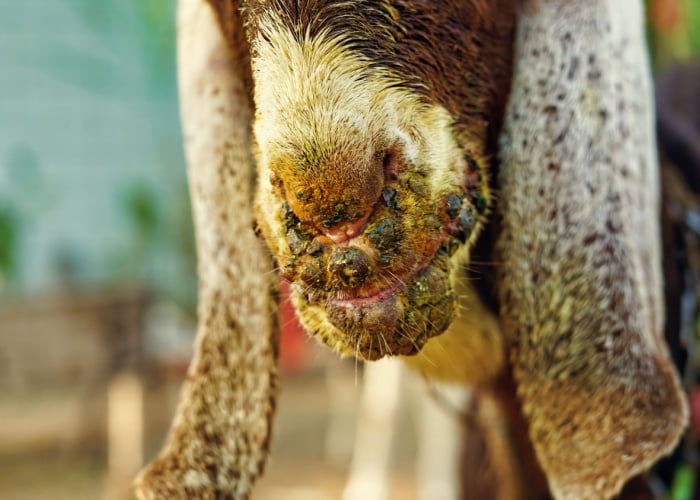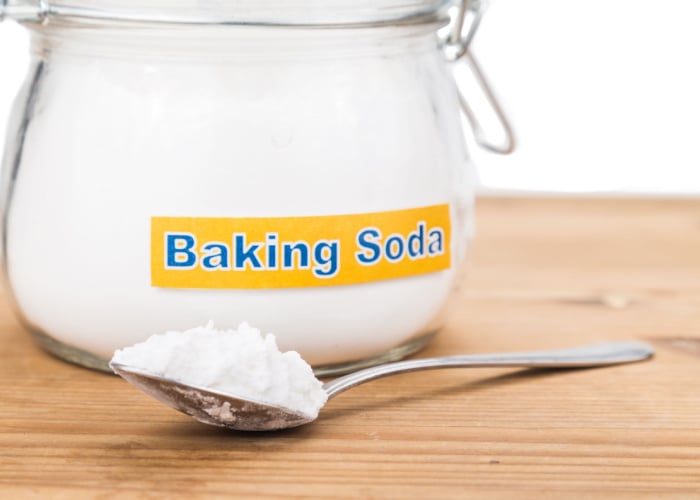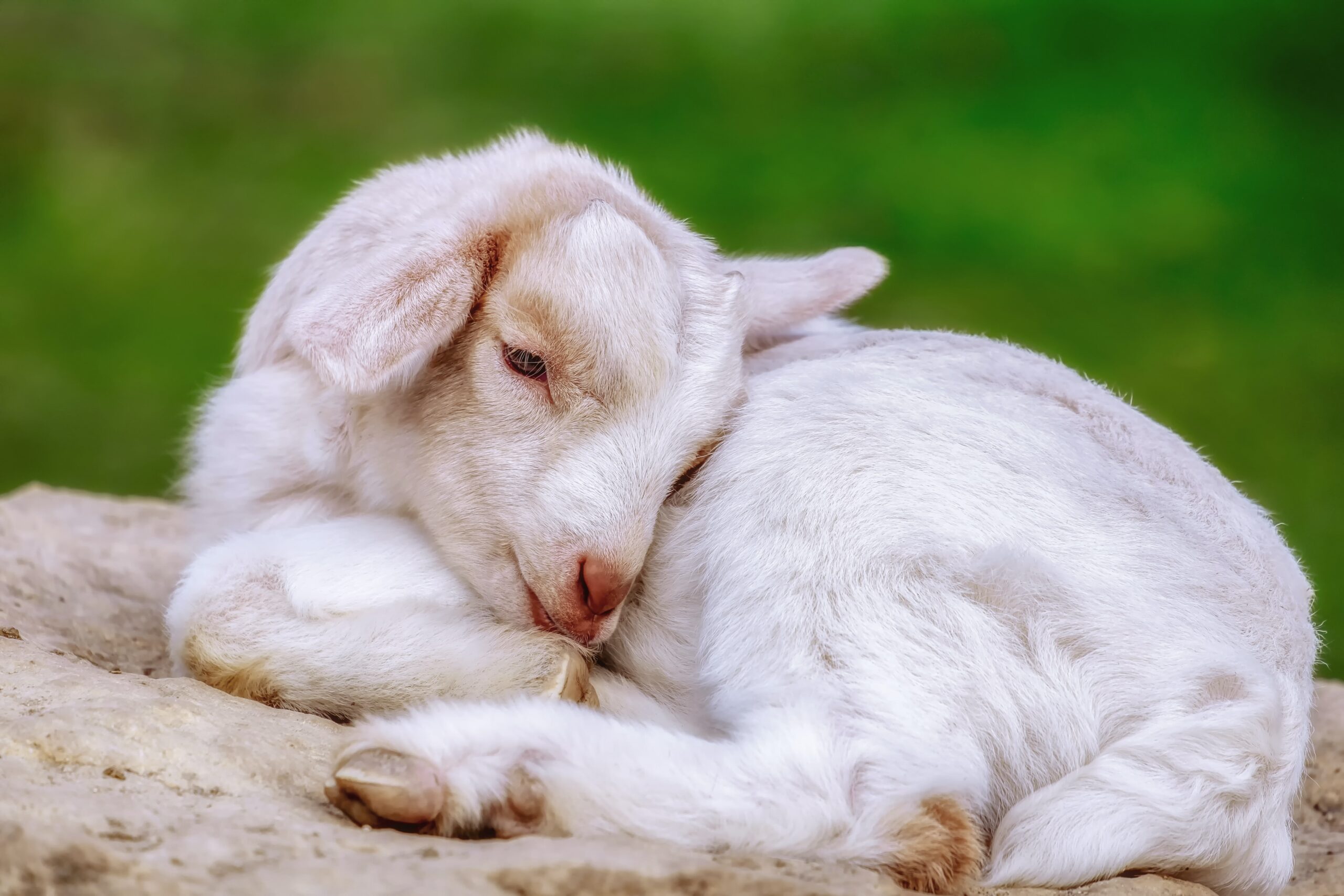Sore mouth, also known as contagious ecthyma or Orf, is a highly contagious viral disease that affects goats worldwide.
It is characterized by the development of painful sores or lesions on the lips, gums, tongue, and sometimes on the udder or teats.
A sore mouth can significantly impact the health and productivity of goats, making it crucial for goat owners and caretakers to understand its causes, symptoms, treatment options, and preventive measures.
What Causes Sore Mouth in Goats
Orf Virus(Parapoxvirus) is the primary cause of sore mouth in goats.
It is highly contagious and can persist in the environment for extended periods, which is a massive threat to goat farming operations.
Goats easily contract the virus through direct contact with infected animals, contaminated objects, or lesions.
40% of goat and sheep operationsin the US reported cases of Orf infections over a three-year period.
Symptoms of Sore Mouth in Goats
Here are a few signs and symptoms you should know and be able to recognize.
Lesions and Sores
Sore mouth is characterized by the appearance of raised, blister-like lesions on the lips, gums, and tongue.
It may also spread to the ears, nose, teats, and vulva on does.
Initially, the sores are red and swollen, later developing into thick scabs or crusts; they can ooze pus too, which is highly contagious.
The lesions are usually painful and will cause discomfort for the goats when they are eating and drinking.
Weight Loss and Dehydration
Goats suffering from sore mouths won’t want to eat or drink, which quickly amplifies all of their issues.
They may also drool excessively, lose a considerable amount of weight, develop wobbliness from fatigue, or lay down and not want to stand back up.
Young goats are very vulnerable; they don’t have much of an energy supply (fat) to rely on, and not nursing for long is deadly for them.
Many of these signs are actually secondhand effects of dehydration and starvation.
Try to intervene before it comes to this. And if it does, you have to act fast before it’s too late for your goat to be saved.
For adults, you’ll need to soften their food. For kids, tube feeding may be needed for a short while.
Mastitis
In severe cases, the infection can spread to the udder or teats, leading to mastitis inmilk goats.
If a mother passes the Orf Virus to her kids, her kids could transfer the infection directly to her udder when they nurse, which can start up a nasty bout of mastitis.
Treatment for Sore Mouth in Goats
Immediately Separate Afflicted Goats
这种疾病具有高传染性,所以删除所有ffected goats right away.
The odds are high that your whole herd will eventually contract it, but you should still do your best to minimize and reduce contact.
Goats can and will transfer orf between themselves repeatedly, making it difficult and frustrating to treat.
Quarantine right away to stop this cycle.
And just because your goats are away from each other does not mean they are safe from transferring this viral disease.
Here are a few ways it will spread on your farm:
- Unsterilized/shared bottles, feeding tubes, and shears
- Halters, lead ropes, collars, and other porous equipment
- Touching several animals without washing your hands
- Contaminated shoes or boots from other barns or properties
- Reusing milking equipment without sterilization in between animals
- Bringing in new soil from contaminated farms
- Contaminated hay, straw, shavings, mulch, or wood chips
- Shared saliva– touching one animal’s mouth and then another’s without sanitizing your hands
Antiseptic and Antiviral Ointments and Creams
Apply topical or antiviral treatment to your goats as soon as you can.
You can get these from your local veterinarian or from many feed stores; online is another good option, albeit not as fast.
It’snot always necessary to use these ointments or creamsin every case, but it is helpful if you have access to them.
Use NSAIDs if Needed
If your goats seem to be in a lot of pain, you may need to administer non-steroidal anti-inflammatory drugs (NSAIDs) to reduce their pain and some of the swelling in their mouths.
Contact your veterinarian to determine if this is needed and where to get these drugs– if they decide it is necessary.
Ensure Plenty of Food and Water Consumption
Your goats won’t be very interested in food or water when their mouths are in intense pain.
You may have to get creative in ensuring they’re still getting the water and nutrients they desperately need as they try to heal.
Provide plenty of clean and fresh water.
Create more palatable foods for your goats so chewing is less painful.
There are a few ways to go about doing this, like making a bran mash or finely grinding their food.
Make a Bran Mash
Ingredients:
- 1 – 3 lbs of grass hay, alfalfa, hay pellets, or alfalfa pellets, depending on the size of your goat
- ¼ lb rice bran
- ¼ to 1 lb of grain or pelleted feed (or a mix)
- 1 tbsp sugar or molasses
- 6 cups of boiling water
- 6 cups of cold water
- 1 cup chopped or diced fruits and/or vegetables (optional)
Instructions:
- Put forage or forage pellets into a metal bucket or can.
- Pour boiling water over the hay in the container. Let stand for 10 minutes. Stir well.
- Pour in the cold water, just enough to be soaked up by your dry ingredients. You’re going for an oatmeal texture, not soup.
- Mix in the grain, bran, and sugar or molasses.
- Mix in the optional fruits and vegetables.
- Let it cool until you can comfortably touch it with your hands.
- 服务to your goat while still warm.
Blend or Finely Grind Their Food
If you don’t want to make a mash, simply run their forage through a blender or food processor and mix it with warm water before serving it.
If you can access a feed grinder (coffee grinders will work, too), set it to a finer blend.
Yes, the feed will be dusty and powdery, but you can remedy this with water.
Only make this food with limited qualities; you don’t want this wet mixture to get the chance to grow mold or mildew.
Prevent Sore Mouth Outbreaks in the Future
Vaccination
Vaccinationagainst sore mouth can effectively reduce the severity and incidence of the disease.
Consult with a veterinarian to develop an appropriate vaccination schedule for your goats.
Several live virus vaccinations are available on the market.
Note that most veterinarians only recommend vaccines if your flock or herd has a history of orf virus infections.
These vaccines are live, and it is very possible for you to contract the infection while injecting your animals.
Be Proactive About Biosecurity
- Isolate new or sick animals and practice proper sanitation protocols. Quarantine animals after they have left your property– this includes visits to the vet, goat shows, fairs, breeding visits, or escapee goats who have visited your neighbors’ farms (it happens, goats are tough to contain).
- Do not wear “street shoes” into your goat areas. Disinfect your shoes, wear plastic over them, or change into barn boots before visiting your goats.
- Sterilize new-to-you items whenever possible, especially if the equipment is used.
- Don’t allow other goats (or sheep) to visit your farm without an appropriate quarantine period.
- Regularly clean and disinfect barns, feed troughs, water tanks, milking supplies, and other equipment.
FAQs about Sore Mouth in Goats
Can Humans Get Sore Mouth (Orf) from Goats?
Yes, humans can contract sore mouths from goats.
It’s important that you use non-porous gloves when working with infected animals.
Also, avoid working with animals when you have an open cut or sore– or cover it well.
Try to avoid being bitten by an affected animal.
See your doctor if you think you’ve contracted orf virus and you have pain, fevers, or a rapidly spreading sore.
What Are the Symptoms of Orf in Goats?
Symptoms include sore mouths, sores, lesions, and crusty scabs.
These are most commonly found on the mouths, muzzles, nose, and lips.
它可能传播到眼睛、耳朵、外阴和udders, especially in nursing dams.
How Do You Treat a Goat With a Sore Mouth?
Separate the goat from your other goats and sheep.
Give it softening ointments, easily palatable food, and constant access to fresh water.
Vaccines are available.
Most of the time, this virus will run its course between one week and one month.
Sore Mouth in Goats: Final Thoughts
Sore mouth is a highly contagious viral disease that can significantly impact the health and productivity of goats.
Understanding the causes, symptoms, treatment options, and preventive measures associated with sore mouth is vital for goat owners and caretakers.
Prompt diagnosis, supportive care, and appropriate treatment can help alleviate the discomfort and promote healing in affected goats.
By implementing strict biosecurity measures and practicing proper hygiene, goat owners can minimize the risk of sore mouth outbreaks and maintain the overall health of their herd.






